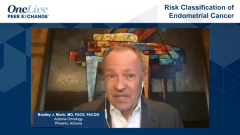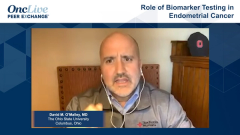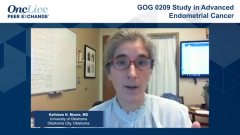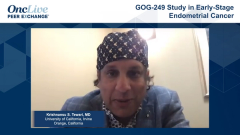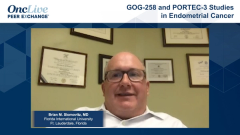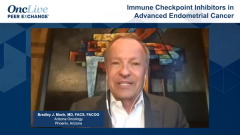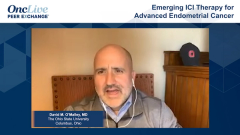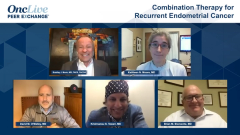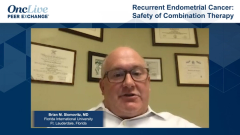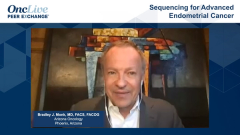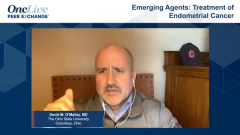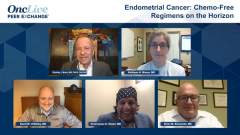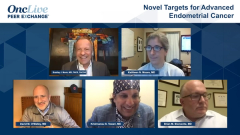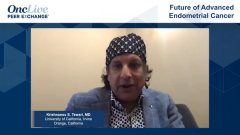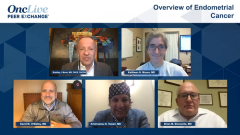
Emerging ICI Therapy for Advanced Endometrial Cancer
Episodes in this series

Bradley J. Monk, MD, FACS, FACOG: Dave, I’m saving the best for you. I have news for the world that pembrolizumab isn’t the checkpoint inhibitor. Right? Shocking. I know sometimes you think that way. But we have 6 FDA-approved checkpoint inhibitors. You work on probably No. 7 and No. 8. You work on balstilimab and dostarlimab. Tell us a little about dostarlimab in endometrial cancer. Because that’s likely to be the next FDA-approved checkpoint inhibitor.
David M. O’Malley, MD: I would love for that to happen. I love competition. Competition is good for our patients. It’s good for the cost of health care. I hope that that occurs. This is a nice presentation, but these data on endometrial cancer are basically 2 trials. One on endometrial-proficient patients and 1 on deficient patients. These were 100 in the deficient arm, 140 in the proficient arm. What we showed was a 45% response rate in the deficient group and 13% response rate in the proficient group. Very consistent with what we’ve seen, particularly in the deficient. But we also have seen a group of patients here, about 13% response rate with single agent. We’ve alluded to the lenvatinib-pembrolizumab data, which had about a 37% response rate. It doesn’t compete with that combination. But we do see some activity.
Bradley J. Monk, MD, FACS, FACOG: Yeah. Thank you.
Transcript Edited for Clarity


